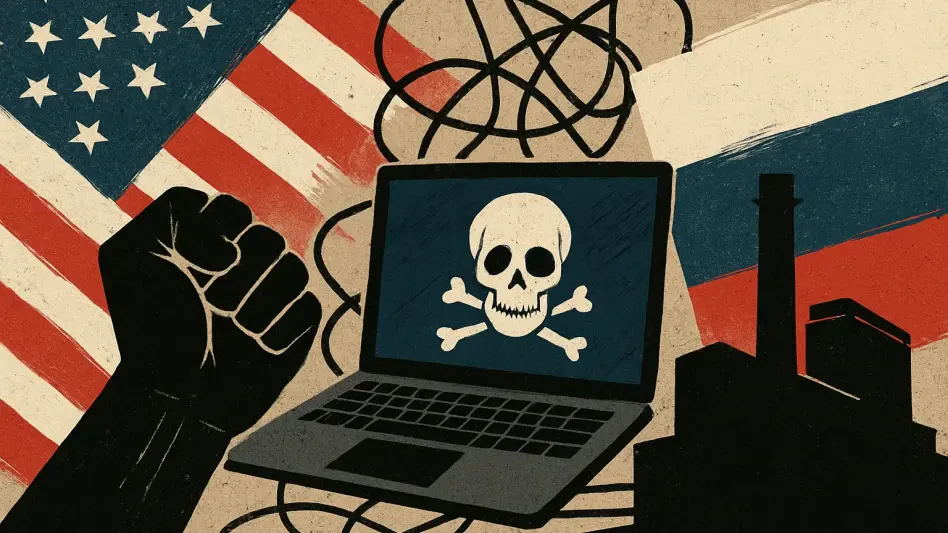In an era marked by relentless digital advancement, businesses confront an omnipresent threat: cyberattacks. These are not mere technical misfortunes but crises capable of triggering substantial financial losses, operational disruptions, reputational harm, and legal complications. The recent incident at Marks & Spencer serves as a vivid illustration, highlighting the need for fortified cyber preparedness. With the initial phase of a cyberattack propelling organizations into emergency response mode, the criticality of possessing cyber insurance has become evident. This insurance aids in promptly accessing incident response capabilities, encompassing cybersecurity forensics, legal advisors for regulatory compliance, crisis communication specialists, and negotiators for ransomware situations. For M&S, suspending its online operations proved costly, underscoring the sweeping implications of such attacks on business operations and reputation.
Emergency Response in Cyber Incidents
The first 48 hours following a cyberattack, a period characterized by urgency and decisive action, are crucial. In this time, companies with cyber insurance can leverage an incident response suite. This includes mobilizing cybersecurity forensics to identify breaches, legal advisors to meet regulatory obligations like GDPR reporting, and crisis communication experts to manage the public narrative. At M&S, the immediate suspension of online services highlighted the damaging effect on revenue and reputation. This decisive response framework is vital for mitigating the initial impact and orchestrating a robust plan to control the situation. Moreover, this period reveals the broader effects on an organization’s reputation. Such attacks can erode customer trust, causing long-term damage. Consequently, businesses must cultivate readiness to tackle cyber crises effectively, minimizing harm and restoring normalcy without delay.
The legal repercussions that follow an attack compound the complexity of response efforts. Companies must ensure thorough regulatory compliance, promptly notifying affected individuals and data protection authorities. Legal departments must navigate contracts with vendors or clients, addressing the breach’s impact on commercial obligations. Potential litigation further complicates matters, necessitating early involvement of cyber incident response lawyers. These experts are pivotal in streamlining legal processes, coordinating frameworks vital to managing the crisis adeptly. Such legal coordination is instrumental in minimizing liability and ensuring seamless integration of legal responses within the broader strategic crisis management plan, helping safeguard the company’s interests and reputation.
Financial and Operational Impact
Beyond data loss, cyberattacks impose considerable financial and operational strains. Incidents like the M&S breach highlight how downtime and service outages can precipitate revenue decline, erode consumer trust, and incur monumental costs. Businesses face expenses related to system recovery, regulatory fines, and infrastructure upgrades. M&S, for instance, faced losses estimated at £300 million, with insurance covering £100 million. This coverage signifies the crucial role cyber insurance plays in ensuring business continuity amid disruptive events. Companies must recognize that cyber insurance is indispensable, akin to fire or liability insurance. Such foresight mitigates financial upheaval, securing the enterprise against unforeseen cyber threats and guaranteeing smoother recovery processes.
The disparity in cyber insurance coverage among businesses underscores the importance of comprehensive policies. Enterprises heavily reliant on digital infrastructures seek these policies for incident response support and legal advisory services. Data recovery assistance, ransomware negotiation, and reputation management are other components of these policies, significantly fortifying organizational resilience. Without adequate protection, firms remain vulnerable to severe post-attack ramifications. Notably, competitors like Harrods and Co-op lack equivalent coverage, representing a precarious position should an attack occur. This vulnerability stresses the necessity of robust policy frameworks to shield business operations from the escalating threat landscape of cyber incursions.
Lessons for the Future
The urgency of the first 48 hours after a cyberattack is crucial for decisive action. Companies with cyber insurance can access an incident response suite during this period, which includes deploying cybersecurity forensics to pinpoint breaches, engaging legal advisors to address regulatory needs like GDPR reporting, and enlisting crisis communication specialists to lead the public narrative. The quick suspension of services at M&S highlights the substantial impact on revenue and reputation. This response framework is critical for lessening the initial damage and crafting a strong plan to regain control. Furthermore, these attacks can severely damage an organization’s reputation by undermining customer trust, leading to lasting harm. Thus, businesses need to be prepared to tackle cyber crises optimally, reducing damage and swiftly restoring normalcy. Legal repercussions add another layer of complexity, demanding compliance with regulations and timely notification of affected parties. Early involvement of cyber incident response attorneys is essential to streamline legal processes, reducing liability and weaving legal actions into a strategic crisis management plan to protect interests and reputation.








